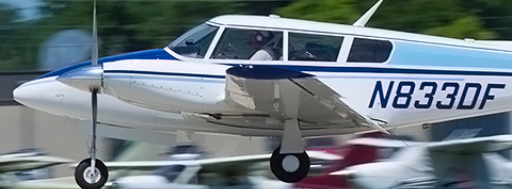Thought I’d share my ‘Exit Interview‘ with you. This is as close to a retail experience as I’ve gotten – just fill out the form and send it in. No personal contact. Awesome.
Employee Name: Frank E Dorrin Jr Base: SBY
Date of Hire: Jun 16, 2014
Last Date Worked: Dec 16, 2015
1. Why are you leaving your job? Poor schedules kept me away from home most of each month; a medical issue that arose with my wife increased my desire to be close to home; and a lack of any form of training support during upgrade training made me re-evaluate my priorities. The joy from the job became significantly less than the hassle in a flash.
2. What did you:
A) Like Best about your job? Flying the Dash-8 was an amazing experience. The people are all excellent, and very willing to show you the ropes. I had a very good time out on the line, and believe my experience was valued and appreciated.
B) Like least about your job? The schedules are full of four day trips that keep you away from home most of the month. Many of these four day trips include only two legs, and/or allot of sitting around time.
The Training Department assumes that once you are exposed to standard flying during initial training, that they need not train to that ever again. Only evaluation is provided from that point on, and your shortcomings pointed out. This is why people learn to fly on the line one way, and prepare to get through training a different way. In my opinion, the real extent of this issue only becomes clear when you do the initial and upgrade training as fast as I did, and come into the industry with no prior knowledge of 121 flying.
Training was an entirely negative and stressful experience, and they believe this is the way it should be. Too bad.
C) Any suggestions for improvement?
Schedules: Improve them. Not an easy task, but do this to improve the life.
Training: Re-evaluate the approach to training and remove the negative bias (evaluating what you are doing wrong and reporting, instead of showing you how to improve and partnering in your performance). Just because line flying is safe does not mean that this training approach is responsible for that. What you get now is a check-ride and an admonition to do better next time.
The initial and upgrade training schedules can be ridiculous. My most recent experience included a shifting schedule where some days included 6 hours of briefs and a 4 hour sim session starting at 5am the next day. Problems identified on one session could not be worked on until the weekend, since there was no time to work together to accomplish change and learn. I didn’t get to meet my sim partner until the first day of sims either, which was less than helpful.
I was once again surprised to see that no actual training occurred during upgrade training, other than in ground school. Instead, it was a continuous check-ride with no time to work on much between sessions. All this led to an unnecessary stress level that was counter productive to professional training. If the culture of the organization is to change to enable more standard flying, then a more positive environment is required.
3. Was there a specific event or condition that caused you to leave? Yes. The call from the training department was unnecessarily negative, and came too early in the training. When that call came, and in the manner it came, it was clear there’d be no support forthcoming from the very folks that are there to train. It was no longer worth enduring terrible schedules along with unnecessary stress to experience this flying.
4. How would you describe your working conditions at Piedmont? Overall they are good. The hotels are good, for the most part. Transportation to and from works well, and the actual flying is safe and fun to do. Schedules aren’t good, but that has been discussed.
Benefits and Monetary Compensation
5. Do you feel you were adequately compensated for being a pilot? YES No point in arguing the compensation piece. The pay is too low industry wide for the sacrifice you make, but other points are more important to me at this point. Besides – no one will ever read this anyway.
6. Do you feel that Piedmont offers a competitive benefits package? YES
7. Do you feel employees are treated fairly at Piedmont Airlines? Yes – my concerns with the Training Department notwithstanding.
8) Do you feel you knew what was going on in the Company? Yes.
9) As a Pilot, were you aware of what was expected of you in terms of skill and performance? On the line – definitely yes. Captains were happy and I felt successful. Regarding the training department, most definitely NO. They do a poor job of communicating the context of a training event, and do not reinforce standards. The do evaluate against a standard, but are not in a position to improve the implementation of those standards in line flying.
RELATIONS
10) How do you feel about your coworkers. Love them all. Great people.
11) How do you feel about your Supv/Mgr: N/A
12) How do you feel about your Dept Mgr: N/A
ADVANCEMENT
13) Adequate opportunity to advance? YES
COMMENTS
14) Any regrets about working for Piedmont? NO. It was an experience I wanted for a very long time. Continuing to accommodate the schedules and the Training approach made no sense though, so it was time to leave.
15) Any other comments/suggestions?: NO
16) Plans for the immediate future: Enjoy being home, and find something local in the spring that involves less travel.
